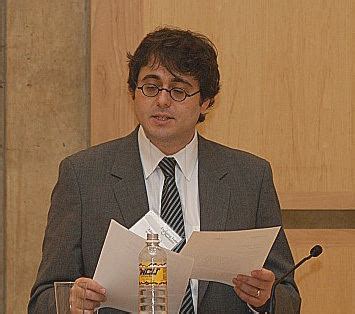A Quote by Philipp Meyer
There's a reason that all societies and cultures and small bands of humans engage in myth-making. Fundamentally, it is to help us understand ourselves.
Related Quotes
In the native literatures of North America there aren't any novels. Instead, the major genre is myth. And myths are stories that are fundamentally about the world, not about human individuals. A myth needn't include any humans at all. If it does include them, they're usually minor characters - imaginary humans sent out like scouts to report back on what's happening in the mythworld, but not central participants in the action.
We usually forget that apart from making a living on this earth, human beings live in societies and these societies have cultures. It is only through having cultures that mankind on this earth has an ordered and meaningful life. Music and drama are two of the many important manifestation of a culture. They are important because they represent the expressions emanating from the power of human artistic creativity
We believe we're seeing, in other animals, a process, or an attribute, that isn't fundamentally different from what we see in humans, so it seems to us to be spurious to call them different things. Now there are aspects of human culture that we don't find in animals, and that's really interesting, but there are also probably aspects of animal cultures that we don't find in humans, and that's really interesting.
Critics worry that if we spend time paying attention to that new kind of media or technology instead of talking to each other that that is somehow isolating. But humans are fundamentally social. So I think in reality, if a technology doesn't actually help us socially understand each other better, it isn't going to catch on and succeed.
What I mean by the common good is that we understand we're all part of something bigger than ourselves, that we live in societies together and must help take care of one another because you never know when you're going to need to be taken care of by others. And it's not enough to say that your family or your church is going to take care of you. Societies are collective entities, we're meant to be connected to one another; the function of government is to administer that connection.
The science of logic never made a man reason rightly, and the science of ethics never made a man behave rightly. The most such sciences can do is to help us to catch ourselves up and check ourselves, if we start to reason or to behave wrongly; and to criticise ourselves more articulately after we have made mistakes.
I've always been interested in technology, but specifically how we can use machines to engage the imagination. I started using computers when I was young and was fascinated by creating rules and instructions that allow a computer to engage in a dialogue with humans. The stories found in the data all around us can do just that.






































